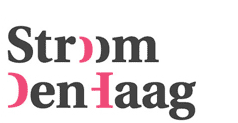WAYS OUT - background information
One Architecture + Berend Strik (NL) first started working together in 1998. They bring together the fields of architecture and visual arts, aiming to come up with undogmatic solutions to urban problems. They look at the development of the city from the point of view of the smallest possible entity: the individual with his or her private desires, views, fears and wishes. In focusing on the point of view of the individual, they enrich the current practice of urban developers who tend to prefer design above day-to-day reality or the particular. In The Hague One Architecture + Berend Strik are researching the possibilities of creating an ideal living and working space for older artists and scientists (who never seem to retire). Can a home for active seniors citizens become an energetic centre within the cultural life of the city and can it change the way we think about aging? The results of their research are presented in the form of a series of flowers illustrating different ways of looking at a stimulating package of requirements. The designs examine the relationship senior citizens have with other people and with technology, rules and regulations, architecture and art.Nils Norman (GB, 1966) reactivates the utopian world views of the hippies. He tries to avoid the mistakes made in the sixties and seventies. With humor he puts ideological rigidness into perspective and stimulates a public debate on the various issues. An important part of his work consists of models and plans for the redevelopment of small urban spaces: a neighbourhood, a park, a building. His ideas are based on the principles of permaculture, promoting self-reliance through home-grown food, recycling and the stacking of functions. In combining the results of scientific research with the powers of imagination, Nils Norman develops utopian scenarios as an alternative for capitalist, economic growth. Apart from the question if his utopian models can be put into practice, they function as possible vehicles for the distribution of radical information. A bike, a bus and a boat literally have been transformed into a library with adjoining greenhouse and public debating area. All the energy generated to activate these mobile information units, is clean. Temporarily the vehicles can be coupled with established institutes, which take it upon themselves to distribute these alternative means of information.
Kyong Park (USA) is the founder of 'StoreFront' in New York (1982), a laboratory for architecture. In 1988 he moved to Detroit and founded the International Center for Urban Ecology. In the extremely dilapidated and desolate inner-city of Detroit he sees possibilities for a new and more human form of urbanization. As opposed to the ongoing redevelopment of downtown Detroit and its emphasis on highrise buildings, he encourages the current small-scale approach of the remaining population. Kyong Park sees the combination of art and architecture as an instrument for change. By presenting and distributing his ideas, Kyong Park urges the inhabitants to get a grip on their own situation. ‘Detroit: Making It Better For You' is a video installation in which real estate developers describe the development of the city of Detroit, thus propagating the loss of the inner-city. '24620' is an abandoned house built in 1920s Detroit. The house tells the story of an abondoned city in a capitalist country. At this moment one half of this nomadic house is in Hamburg, the other half will come to The Hague in March 2002.
Ocean Earth (USA) is a collective of artists, architects and scientists which was founded in New York in 1978. In this exhibition Ocean Earth is represented by Peter Fend and Eve Vaterlaus. They analyse the balance of power in the world from the viewpoint of energy-policy. With a critical eye they investigate the availability of information like research reports and satellite images, only a small section of which is publicly available. Furthermore, they study the way this information is used and manipulated by politicians and the media to prove certain standpoints. Ocean Earth fights for the freedom to examine the data objectively, in order to create insights into the real ecological damage caused by the current extraction of energy resources. Peter Fend uses ocean-based maps of the world to reveal the global interrelationships. With a test version of an algae rig in the harbour of Scheveningen, Ocean Earth introduces a concrete alternative for mineral energy production, to be used wherever there is a saltwater lake, sea or basin.
(more information about Ocean Earth)

















